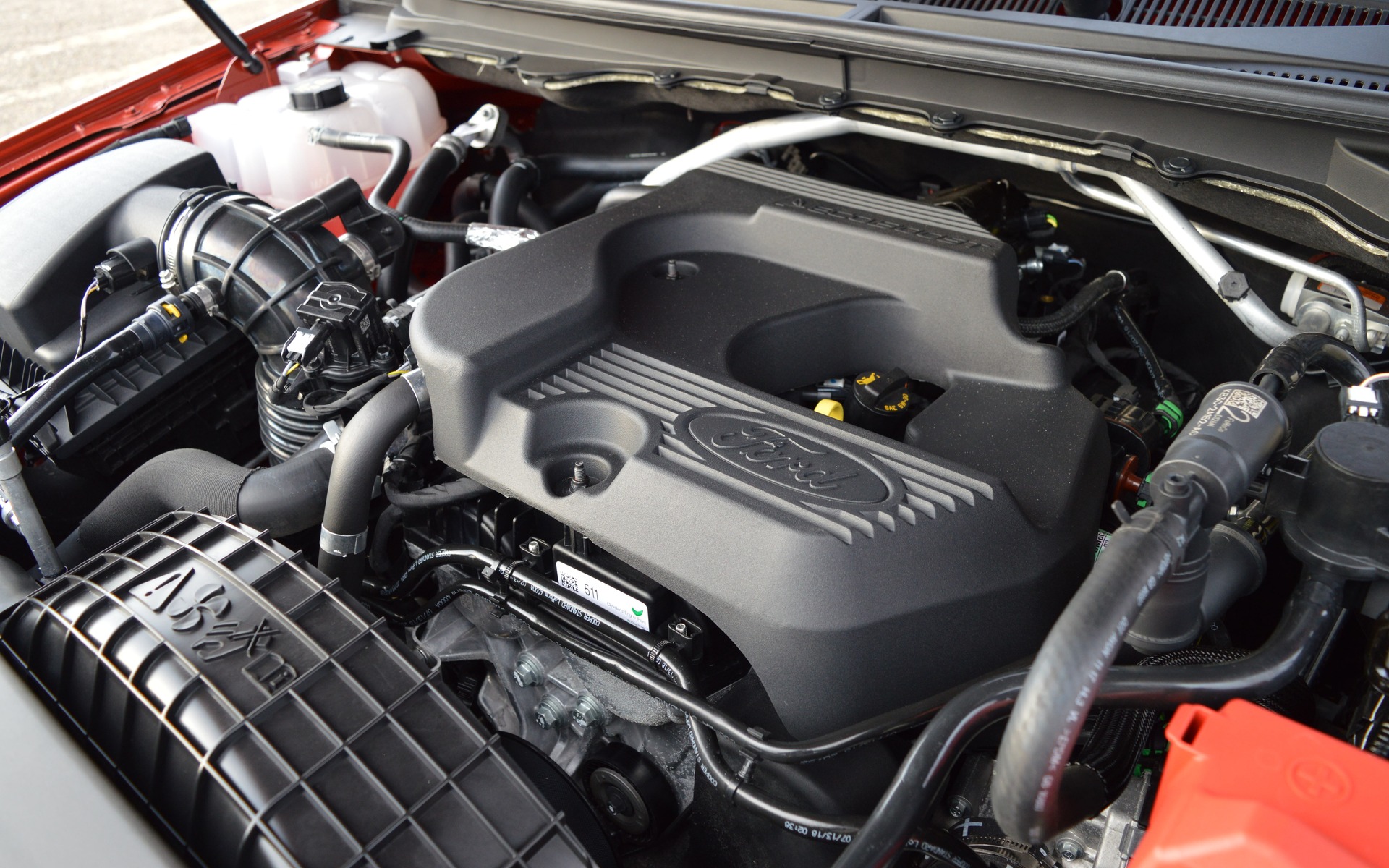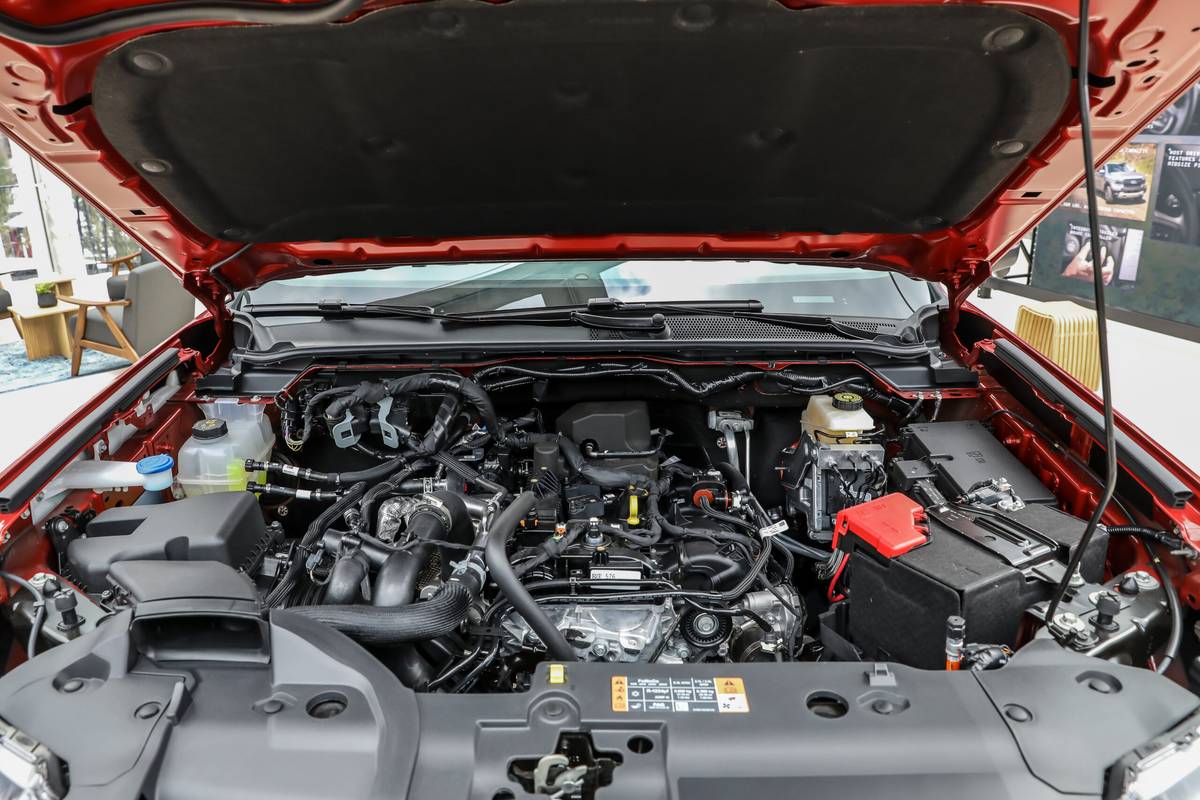Is the 2.2 Ford Ranger Engine the Right Fit for Your Driving and Work Needs?
Is the 2.2 Ford Ranger Engine the Right Fit for Your Driving and Work Needs?
Blog Article
How to Select the Right Vehicle Engine for Maximum Efficiency and Performance
Choosing the ideal auto engine to accomplish an optimal equilibrium of performance and performance demands a nuanced understanding of different engine types and their certain characteristics. Variables such as engine displacement, the variety of cyndrical tubes, and gas kind play an essential function in figuring out both power output and gas economic situation. While some may lean towards performance-driven options, others may focus on sustainability and performance. Recognizing these characteristics is necessary; nonetheless, the challenge depends on straightening these qualities with your specific driving needs and preferences. What considerations will eventually guide your choice?
Recognizing Engine Kind
When choosing a vehicle, one of the most vital elements to think about is the engine kind, which functions as the heart of the car. The engine type dramatically influences the cars and truck's general efficiency, long life, and viability for your driving requirements. There are largely 3 engine kinds to think about: interior combustion engines (ICE), hybrid engines, and electrical engines.
Internal burning engines remain the most usual, running on gas or diesel. They are recognized for their power and velocity, making them suitable for performance-oriented lorries. However, they may drop short in gas efficiency and ecological influence.
Crossbreed engines integrate an inner burning engine with an electrical motor, using an equilibrium in between performance and fuel economy. They are significantly preferred for motorists seeking minimized exhausts while still supplying ample power.
Electric engines, powered completely by batteries, are acquiring grip as a result of their ecological advantages and reduced running expenses. They supply immediate torque and a quiet driving experience, making them suitable for urban commuting.

Efficiency vs. Efficiency
Choosing the right engine type includes evaluating the trade-offs in between performance and effectiveness. Efficiency normally refers to exactly how well an engine can provide power and acceleration, which is often associated with bigger variation engines or those with turbocharging capacities. These engines usually give thrilling driving experiences and fast action times, making them prominent among enthusiasts.
On the other hand, effectiveness focuses on gas economic climate and lower exhausts. Smaller sized engines, particularly those furnished with sophisticated innovations such as straight fuel injection and variable shutoff timing, tend to deliver much better miles per gallon and reduced carbon impacts. While these engines may sacrifice some power compared to their larger counterparts, they frequently master daily driving situations where high performance is not always required.
Ultimately, the option between performance and effectiveness depend upon specific priorities. A driver that values perky driving could focus on a high-performance engine, while a person looking for cost-efficient commuting may favor an efficient choice. Understanding these trade-offs is vital for making an informed choice that aligns with your driving requirements and way of living, ensuring that the selected engine kind enhances your assumptions for both efficiency and performance.
Trick Specs to Consider
Comprehending vital specs is necessary for making an educated choice regarding the best car engine. When choosing an engine, a number of critical aspects call for factor to consider to ensure ideal performance and performance.
It suggests the complete volume of the engine's cylinders and typically correlates with power outcome; larger variations usually generate more power. Engines with more cyndrical tubes can provide smoother operation and higher power, while smaller setups can improve gas efficiency.
Additionally, the engine's configuration, whether inline, V-type, or rotating, affects the total design and performance qualities of the lorry - 2.2 ford ranger engine. Turbocharging and turbo charging modern technologies need to likewise be assessed; these boost an engine's power outcome without why not look here substantially raising its dimension, thus enhancing performance
Gas type is another vital factor to consider, as it impacts both efficiency and costs. The engine's compression proportion impacts performance and power delivery; a greater ratio typically leads to much better effectiveness, however might call for premium gas. By thoroughly examining these specifications, you can choose an engine that aligns with your efficiency and effectiveness goals.
Examining Driving Demands
Examining driving demands is a fundamental action in establishing the ideal cars and truck engine for your lifestyle and use patterns. If your driving primarily consists of short commutes in metropolitan environments, a smaller sized engine with great gas efficiency might be adequate.
Consider the terrain you normally navigate. Hilly or tough landscapes may demand an engine with greater torque for far better performance. In addition, reflect on traveler and cargo requirements; bigger families or those who deliver items may benefit from vehicles with raised power and capability.
Diesel engines frequently supply remarkable torque and gas economy for much heavier cars, while fuel engines might give a smoother and quieter adventure. Aspect in environmental factors to consider, as hybrid or electric engines can give a much more sustainable option without giving up performance.
Future Patterns in Engine Innovation
As the automotive industry remains to evolve, advancements in engine modern technology are leading the way for more lasting and effective driving experiences. One considerable pattern is the shift towards electrification, with hybrid and completely electrical powertrains gaining prominence. Car manufacturers are spending greatly in battery innovation to boost energy density and decrease charging times, eventually boosting the functionality of electrical vehicles (EVs)
Another arising fad is the advancement of hydrogen gas cell engines. 2.2 ford ranger engine. These systems provide the possibility for zero-emission this link driving while providing refueling times comparable to conventional gasoline engines. Additionally, advancements in combustion innovation, such as variable compression proportions and improved turbocharging, are maximizing traditional inner combustion engines for much better performance and performance
Digital integration is likewise a vital aspect of future engine modern technology. The implementation of expert system and machine understanding enables real-time information evaluation, making it possible for smarter engine management systems that adapt to driving problems and boost gas efficiency.

Verdict
Finally, picking the suitable automobile engine see page requires a thorough analysis of numerous elements, including engine kind, efficiency demands, and performance objectives. By understanding the differences between different engine kinds and considering essential specifications, people can align their options with specific driving requirements. As improvements in engine technology remain to arise, remaining educated regarding future trends will further enhance decision-making, eventually resulting in a lorry that balances performance and fuel effectiveness successfully.
Choosing the proper vehicle engine to achieve an optimal balance of efficiency and effectiveness demands a nuanced understanding of different engine types and their particular characteristics. There are largely 3 engine kinds to think about: interior combustion engines (ICE), hybrid engines, and electrical engines.
Efficiency typically refers to how well an engine can supply power and velocity, which is often associated with bigger variation engines or those with turbocharging abilities. Diesel engines frequently use remarkable torque and fuel economic climate for much heavier lorries, while gas engines might supply a smoother and quieter experience.In verdict, selecting the proper auto engine demands an extensive assessment of various elements, consisting of engine type, efficiency demands, and efficiency goals.
Report this page